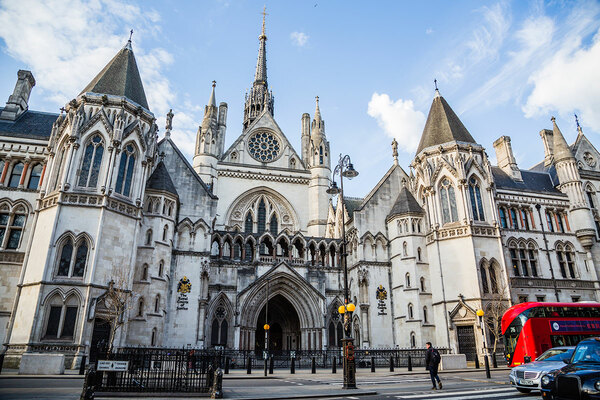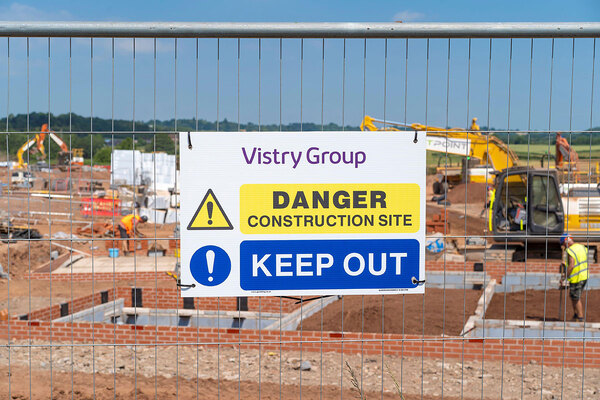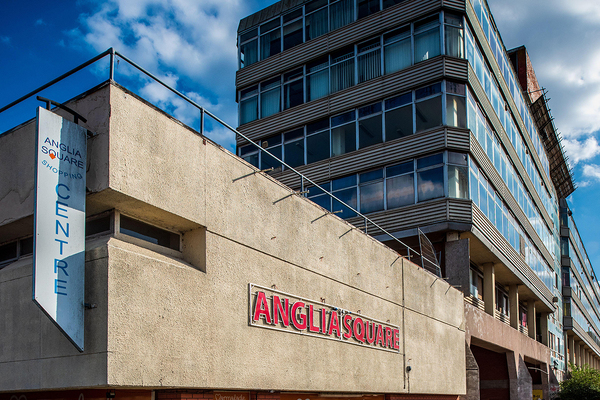You are viewing 1 of your 1 free articles
Landlord with 25,000 homes handed governance downgrade over ‘underinvestment’ concerns
A 25,000-home housing association has been given a governance downgrade for failures related to underinvestment in its existing homes, as part of a series of judgements released by the regulator today.
Your Housing Group (YHG), which operates across the North West, Yorkshire and the Midlands, was downgraded from ‘G1’ to ‘G2’ after the regulator found that “there is evidence to indicate some underinvestment in YHG’s existing homes in recent years”.
A G2 rating means that the association meets the regulator’s governance requirements but needs to improve some aspects of its governance arrangements to support continued compliance.
According to the judgement, YHG has not met the regulator’s transparency requirements as it was not clear whether the landlord’s regulatory returns fully reflected its growth plans and stock investment requirements.
The regulator also said that YHG needs to improve its approach to value for money, as the board “has not demonstrated that it has ensured effective use of resources in line with its objectives and charitable status”.
The regulator has begun to focus more on the value for money of associations in recent years, and last month its chief executive Fiona MacGregor said it was essential organisation’s assets and resources were used efficiently and effectively.
A spokesperson for YHG said: “YHG fully accepts the regulator’s judgement and we will continue to engage positively with them. We are proud of our V1 status for business viability and we will continue to work hard to retain it.
“We are disappointed that our governance rating has been amended to G2 and although this is still a compliant position, we intend to take all actions necessary to provide assurance to the regulator, with a view to restoring our G1 status at the earliest opportunity.”
Progress Housing Group, which owns more than 9,000 homes in the North West, was also moved down from G1 to G2.
The regulator said that Progress had self-reported a number of issues concerning health and safety and that the association is working to rectify failings.
However, an independent review found that Progress has not had adequate assurance on health and safety compliance because of data issues.
Jacqui De-Rose, group chief executive at Progress, said: “Last year, we became aware that a small proportion of our health and safety inspections were not up to date and that some of the follow up actions or repairs had not been carried out in a timely fashion.
"We immediately notified the Regulator of Social Housing and engaged an external, independent specialist to put in place a detailed action plan to put things right. We have updated our working practices and over the next few months will complete the last few outstanding inspections and catch up works.
"We have reassured all our tenants that they are living in safe properties that have been through a rigorous set of health and safety inspections.
"We will continue to work tirelessly to ensure that we become a leader in the field of property compliance. This will include working closely with the regulator to implement an agreed set of actions that demonstrate the strength of our health and safety processes and also our governance arrangements.”
In addition to the two governance downgrades, Broadacres, Bournville Village Trust, Howard Cottage and Origin were all given governance upgrades.
Broadacres, which owns more than 6,000 homes in North Yorkshire and the North East, was deemed non-compliant in 2017 for failing to manage “foreseeable risks” within a building company it owned.
Following an upgrade to G2 from G3 in 2018, the landlord has now had its rating upgrade to G1 after it “demonstrated that the board has effective oversight of the risks associated with the delivery of its strategy”.
Origin Housing, which owns around 6,700 homes in London and the South East, had its governance rating upgraded from G2 to G1 following work undertaken to improve the quality of its data and systems.
However, the landlord maintained its ‘V2’ rating for financial viability because of its reliance on sales receipts and additional costs relating to fire safety work.
Bournville Village Trust (BVT), which owns around 4,000 properties in Birmingham and Telford, was handed a governance upgrade from G2 to G1 after establishing audit and risk and finance committees within its governance structure.
A previous judgement found that BVT “needed to improve some aspects of its governance arrangements, in particular its approach to risk management, to support continued compliance”.
Helen Harvey, director of people and performance at BVT, said: “We are committed to building organisational and financial strength, delivering good governance and meeting legal and regulatory compliance.
"Since our last regulatory assessment in December 2018, we have worked hard to make improvements in particular to risk management, stress testing and financial reporting, and as a result we are very pleased to have successfully regained our G1 rating."
Howard Cottage, which owns just over 1,600 homes in Hertfordshire and Bedfordshire, was upgraded to G1 from G2 following a restructuring of governance and leadership arrangements.
In 2018, the regulator identified that the landlord “needed to strengthen aspects of its risk management arrangements and stress-testing to support effective board oversight of its key risks”.
In addition to the six narrative judgements, Croydon Churches Housing Association and Warrington Housing Association both had their G1 and V1 ratings confirmed. Housing Plus Group also had its G1 and V1 ratings confirmed following its merger with Stafford and Rural Homes.
Regulatory judgements published on 26 February 2020
| Provider | Governance | Viability | Explanation |
|---|---|---|---|
| Bournville Village Trust | G1 | V1 | Governance upgrade |
| Broadacres Housing Association | G1 | V1 | Governance upgrade |
| Croydon Churches Housing Association | G1 | V1 | No change |
| Housing Plus Group (The) | G1 | V1 | First judgement since merger |
| Howard Cottage Housing Association | G1 | V1 | Governance upgrade |
| Origin Housing | G1 | V2 | Governance upgrade |
| Progress Housing Group | G2 | V1 | Governance downgrade |
| Warrington Housing Association | G1 | V1 | No change |
| Your Housing Group | G2 | V1 | Governance downgrade |
Regulatory judgements in England explained
The Regulator of Social Housing publishes regulatory judgements for all providers owning 1,000 or more social housing homes.
These judgements set out whether the provider is complying with the regulator’s governance and financial viability standards.
The regulator carries out an assessment either through a scheduled in-depth assessment, or reactive engagement (in which the regulator acts following information about a provider).
It then awards the provider a rating from one to four for financial viability (V) and a separate rating from one to four for governance (G).
Providers must score two or higher in both categories to be judged as complying with the standards.
As providers have increasingly taken on more risk to cross-subsidise social and affordable housing delivery through market-facing activity, the regulator has changed a number of associations’ viability ratings from V1 to V2.
The regulator often categorises this kind of regulatory action as ‘regrades’ rather than downgrades. Click here to read more.
Key to ratings:
V1/G1: Compliant
V2/G2: Compliant
V3/G3: Non-compliant and intensive regulatory engagement needed
V4/G4: Non-complaint, serious failures, leading to either intensive regulatory engagement or the use of enforcement powers
Rating straplines in full:
Governance ratings:
G1: The provider meets our governance requirements.
G2: The provider meets our governance requirements but needs to improve some aspects of its governance arrangements to support continued compliance.
G3: The provider does not meet our governance requirements. There are issues of serious regulatory concern and in agreement with us the provider is working to improve its position.
G4: The provider does not meet our governance requirements. There are issues of serious regulatory concern and the provider is subject to regulatory intervention or enforcement action.
Financial viability ratings:
V1: The provider meets our viability requirements and has the financial capacity to deal with a wide range of adverse scenarios.
V2: The provider meets our viability requirements. It has the financial capacity to deal with a reasonable range of adverse scenarios but needs to manage material risks to ensure continued compliance.
V3: The provider does not meet our viability requirements. There are issues of serious regulatory concern and, in agreement with us, the provider is working to improve its position.
V4: The provider does not meet our viability requirements. There are issues of serious regulatory concern and the provider is subject to regulatory intervention or enforcement action.
Jargon-busting: some regulatory terms and what they mean
- Co-regulation: this means boards are responsible for deciding how to meet the regulator’s standards – the regulator does not prescribe how to do this
- Gradings under review list: a public list of providers under investigation who are at risk of being judged non-compliant with regulatory standards
- In-depth assessment: a planned inspection, in which the regulator assesses a providers viability, governance and approach to value for money
- Narrative regulatory judgement: a detailed explanation of the reasons behind a regulatory judgement. Narrative judgements are published where a providers’ viability or governance ratings have changed, or where RSH has particular issues or concerns.
- Reactive engagement: refers to the regulator reacting to complaints or allegations about a provider and taking action
- Stability check: an annual assessment of all providers owning 1,000 social homes or more. RSH uses accounts and statistical return data to check for any changes in a providers’ risk profile.
- Strapline regulatory judgement: where a provider is meeting the standards, and its governance or viability ratings have not changed since its previous judgement, the regulator does not publish a full judgement explaining its reasons for the gradings. Instead it just publishes the gradings themselves, in a ‘strapline’.












